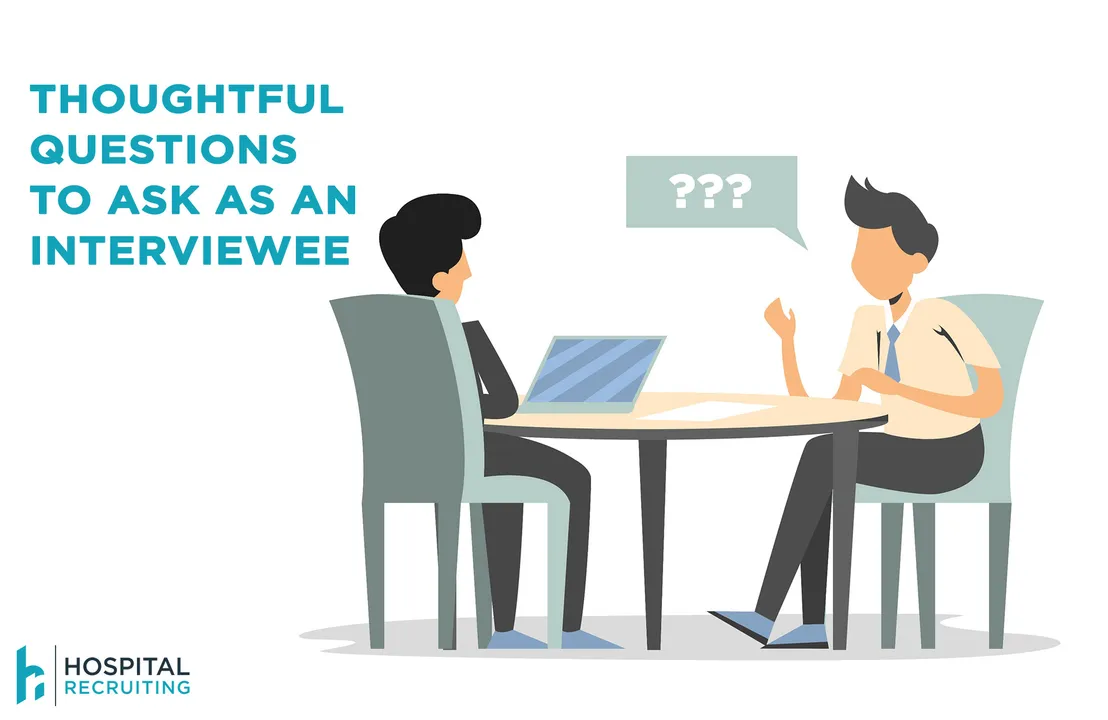Thoughtful Questions to Ask as an Interviewee

Interviewing for a new position is a stressful engagement, particularly if you're the interviewee. It's easy to get caught up in focusing on your appearance and how you're communicating your skills and completely forget that while the company is interviewing you, you too are interviewing them. This is the time for you to find out if this particular company and position is a good fit for you and to determine if it is one that you actually want. Furthermore, asking questions shows that you have a deep interest in learning more and preparing for the position. It opens a dialogue between you and the company that can push you right to the top of the candidate list, but only if you ask the right questions.
To be fair, recruitment teams might not have all the information you’re looking for, but as you advance further through the onboarding process, all of your questions should be answered (at least to some degree). While you do want to turn the interview around during this time, you don't want to appear as if you're interrogating the interviewer who may not be prepared for your inquiry. Be kind and courteous and if they're unable to provide answers, kindly ask that they send a follow up email. This will keep the open dialogue with the team that may lead to you getting the job.
Choose a max of 6-8 questions to ask, depending on how much time is available. If you can work additional questions in during conversations, feel free to do so. Remember to take notes and keep track of what questions are most important to you and what answers stand out.
Environment
1. Can you tell me about the environment on the unit (in the office, on the job)?
2. Do your employees work as a team, or more independently?
Asking an open-ended question about the environment you’ll be working in can provide some insight into the milieu that you can expect to work within. Listen for clues about employee and/or customer interactions, interoffice dynamics, and expected pressures. Carefully consider these responses and if you will fit well within the team.
Staffing
3. What characteristics do you look for in your employees?
4. How does the company handle situations where staffing is short?
Understanding what the company is looking for will also help you in deciding if you’re a good fit. While your answers to interview questions may sway them into hiring you, it’s important to get a good understanding of what they’re seeking and decide if that is you. When asking about staffing, listen for clues about the frequency of staffing shortages and a positive or negative attitude towards the situation. While working for an organization with no shortages is optimal, how they handle the difficulties says more about them than anything else.
Employee Satisfaction
5. On average, how long do your employees stay with the company?
6. How often do current employees move into higher levels within the company?
Responses to these questions can reveal a lot about your prospective employer and the environment they’ve created. Hearing that most employees stay for only a short time is a red flag in most industries. If the interviewer reveals that turnover is an issue, ask what the company is doing to improve working conditions. Note: Beware of an interviewer who uses this type of question to speak unfavorably about a previous employee in any way.
Company Growth
7. Can you tell me about the company’s recent growth and future predictions?
8. How has the company grown in the past 5 years?
Depending on your goals within the company, future growth projections may make or break your career. While nothing can be promised, the hiring organization should be excited to share their future expectations and goals. If your interviewer isn’t able to offer insight, you can use the EDGAR search tool from the U.S. Securities and Exchange Commission to view financial reports about corporations and do your own research on their financial health.
Company Benefits
9. What can you tell me about the benefits offered to this position?
10. What are some of the lesser-known or often forgotten benefits?
Benefits are often glossed over during the interview process as an expected set of offerings. Take this time to really find out what is available. If your interviewer doesn’t know all the benefits available to the employees (and they likely won’t), take this moment to request a follow up email with some information. Benefits vary widely and can sometimes be the deciding factor between two job offers.
Company Investment
11. How does the company invest in their employees?
12. How does the company invest in the community?
Where a company invests their money and time says a lot more about them than any marketing campaign could. While you can often find some reporting of charitable giving and participation in community events listed on their webpage, this is a great time for the interviewer to let you in on what the company is doing currently. The best organizations spend both time and money investing in their community and employees on a regular basis.
Dispute Management
13. How does the team handle conflict resolution?
14. Can you tell me about a time that there was a dispute within the team that could not be resolved easily and how management handled it?
Disputes are inevitable, but how they are handled within a workplace says a lot about the environment in which you’ll be working. It’s a great sign if your interviewer can offer a clear directive on how disputes are resolved.
Overall Satisfaction
15. What is your favorite & least favorite thing about working here?
16. What makes your organization a better choice for candidates?
When given the opportunity to boast about their workplace, the interviewing officer should be more than happy to open up. This is their time to brag on the organization and share aspects that are lesser known about the company. Listen for a positive attitude overall, as it’s a sure sign of a great working environment.
Remember, open-ended questions with an air of curiosity are best and will lead to the most detailed answers. Listen carefully and you will walk away from the interview knowing for sure if the company is a good fit for you.
Related Posts
